
We were delighted to be reviewed by Muddy Stilettos recently, an awardwinning lifestyle platform who provide unique, independent and honest reviews of schools throughout the UK.


























We were delighted to be reviewed by Muddy Stilettos recently, an awardwinning lifestyle platform who provide unique, independent and honest reviews of schools throughout the UK.
























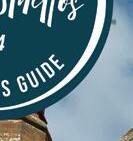
This leading co-ed school in the centre of Coventry puts academic success and pastoral care front and centre. There’s a strong grammar school ethos mixed with a forward-thinking approach to an all-round education.
You’ll find King Henry VIII School in Victorian red brick splendour in central Coventry, though its turreted and lead-windowed exterior belies a much older Tudor past – the School was established by you-know-who in 1545 (um, the clue’s in the title) before moving to this site in 1885. A selective, co-ed all through school for 3-18 year olds with a Christian ethos, King Henry’s Senior students get the run of the historic building, whilst the Junior and Sixth Form blocks are purpose-built for the job. Pre-Prep children are taught off site.
Altogether there’s a combined footprint of 25 acres – pretty roomy for a city centre school. There are around 840 pupils here, split equally-ish between boys and girls – 570 students in Senior School, 130 in the Sixth Form and 237 pupils in the Junior School, in class sizes generally between 20-23. Locally the School is well known for its academic success, diverse community and all-rounder ethos.



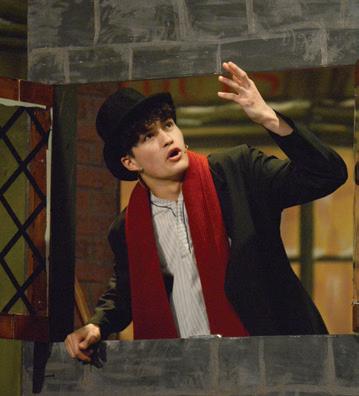
Plenty of facilities to entice here, with its own Sports Centre, with fitness studio, 25m six lane swimming pool, drama studio, separate huge sports hall with cricket nets, markings for badminton, basketball and netball, plus a huge climbing wall in the corner that stretches up to the ceiling.
Outdoors there’s a mini Astro perfect for training, netball courts, pitches for rugby and athletics plus, offsite, a new double Astro turf and a further two playing fields. The major sports for boys during Games are rugby, hockey and cricket; for the girls hockey, netball and cricket, with additional sports such as athletics, tennis, football and fitness on the PE programme.
There’s plenty of opportunity to get involved either for regular participation or performance. The School has County Champions, National Cup and Plate winners including a golf team which counts the UK’s top Under 15 player in its ranks. Individual talent is well supported here with good links between the School and various sports clubs.
Strong. The Art provision also seems very popular – 12 Year 12s currently taking it for A Level and 24 for GSCE. There are four freeflow, interconnecting rooms and an enthusiastic Head of Art and Design, Alex Burton, who is encouraging Digital Photography, Graphics and Textiles as specialities. She’s earmarked some first-floor balcony space to develop her department further, so she has ambition for the Department and the kids – always good to see.
Music facilities are good here, and include 12 practise rooms, a recital room, keyboard room and two music tech rooms where Sibelius software is used for notating music (Music Tech
A Level coming soon), and a not-so-secret weapon in a biennial concert at Warwick Arts Centre’s superb Butterworth Hall.
There’s a plan to rethink the top floor of the School and create a dedicated Performing Arts and STEM centre so watch this space – but in the meantime you’ll want to meet the charismatic Head of Performing Arts, Robin Newton. Previously a conductor for the likes of the Welsh National Opera, the Bergen National Opera and the Royal Philharmonic Orchestra, he’s charismatic, quick to laugh, hugely knowledgeable and clearly passionate about working with the kids. A role that oversees Music and Drama as one means they are naturally more cohesive – so poetry readings may happen against a backdrop of Music, and a pupil-led band, rather than hired help, accompanies the annual school musical.
An exciting development at the School, instigated from Sept 23, are the free music lessons for all Year 7s in an instrument of their choice. How cool is that? The money has been assigned for the next 50 years so it’s a real commitment, and it’s a smart, practical response to the Covid years, when piano lessons increased to the detriment of other instruments (there is currently one school orchestra versus the three before Covid). With ensembles and concerts for Year 7 planned during the year too, the idea is that it will boost both the numbers and quality of orchestral players throughout the School, adding to the existing orchestras, and chamber ensembles.
Choir is already compulsory for those in Year 7, and that sees its reward in the choral competitions the School wins, most recently at the Leamington Festival as well as repeated success for chamber ensembles at the national Pro Corda Chamber Music Competition.
Amidst the usual library, dining space and extra-curricular offering (70 clubs and activities each week, since you asked), there’s one stand out facility that needs shouting about. The School’s DT offering is wildly impressive – King Henry VIII pupils were made six-time British robotics champs in 2022, are currently the top European robotics school and came 8th in the Robotics World Championships this year. Like, wow.
The School has its own Robotics arena and offers access to the free Robotics club for all so if your child is keen on technology, it’s a DT dream right here.
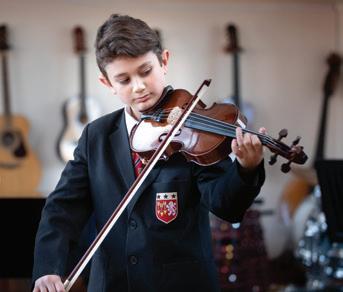
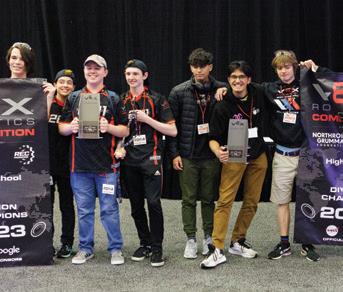
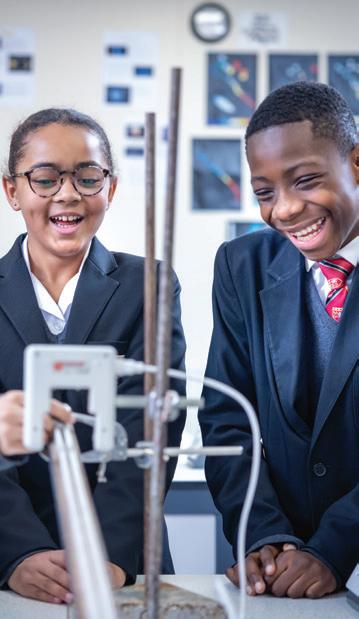

Undeniably a strong suit here. GSCE results in 2023 were the best in 10 years – 25% of the children reached Grade 9, and 67% of Grades were 9-7s (A*-B), with Music the top performing subject (more than 50% of pupils gaining Grade 9). A Level results beat pre-Covid levels –probably the best gauge of school improvement after the nation’s ‘self-marking’ years with sciences the most popular subjects and pupils heading off to universities including Oxford, Birmingham, Exeter, Nottingham, Liverpool and Lancaster.
There’s a separate Sixth Form building directly across the road from the main School campus, offering the feeling of independence and ‘campus’ style learning that sets the kids up for uni and beyond. Built in 1996, it’s a great addition to the School, with a huge, stylish Common Room with pyramid ceiling, bridge access to a private garden, study room, kitchen and café, plus two Seminar Rooms. Sixth Formers can use their own dedicated in-house catering service rather than queue up in the dining hall with the younger years.
Tutor groups are small – no more than 14 – and be warned, your child will need a minimum of five GSCE Grade 6+ passes to study here, with Grade 7 preferred, and sometimes required, for the subjects they want to study (big juicy caveat: if you’re already a Henry’s pupil, you will automatically enter the Sixth Form!). A Level choices here are largely traditional, though Law isn’t a subject I see offered routinely, and King Henry’s Sixth Formers can boast one of the few school Law Libraries in the whole country. Law and Psychology are both taught within the Sixth Form Centre, with other subjects still taking place in the main school buildings.
As in many schools I visit, pastoral care is an area much-bolstered since Covid, with a roll call of support at King Henry’s including a Deputy Head Pastoral Designated Safeguarding Lead, Pastoral SEND Coordinator, Pupil Wellbeing Mentor, Anti-Bullying Ambassadors, Assistant Head Pastoral, school chaplain, bereavement counselling, a full-time nurse and three counsellors for pre-booked appointments. There are My Concern Boxes around the School as well as a ‘I Need Help’ button on the School’s intranet and a Healthy Minds council that elevates pupil voice and gives pupils training on how best to support others.
In terms of facilities, there are two learning support rooms where staff are on hand throughout lunchtimes to talk to those who want a chat. New this year is a dedicated Wellbeing Centre where the nurse is based, which includes two treatment rooms, two bathrooms and a break out area, currently not in use, that will become a chill-out space with soft bean bags and weighted blankets.



On the same site as the Senior School, you’ll find the Junior School for Years 2 - 6 (6 - 11 year olds) in a purpose-built red brick building with its own sports hall, science lab, library, music rooms and two ICT suites. Currently there are 237 children here in classes of maximum 24, though there’s capacity for growth to 260 should they need it. Roughly 20% of the children have SEND needs, predominantly dyslexia and dyspraxia, and are well catered for with the Learning Support SENDCo based here and Learning Support rooms on site.
The Junior School has GL tracking to better monitor pupil progress, a Character Awards programme and a holistic agenda that includes a love of outdoor learning and nature.
Music provision at the Junior School is particularly strong, headed up by Nicky Bawcutt – previously with the Royal Philharmonic Orchestra and nearby Birmingham Symphony Orchestra. A singer by profession, it’s no surprise that she runs several choirs at the Junior School as well as a Junior Orchestra – that’s unusual and welcome, particularly in a school of this size. Over 50% of Junior pupils play an instrument, with all instruments welcome. Case in point, there’s currently a bassoonist in the mix.
Sport here is split down relatively traditional lines – boys play rugby, girls play netball and there are no mixed teams at present though the years group together for competitive fixtures, usually 3 - 4 and 5 - 6.
As you’d expect from a high-performing school, there are specialist teachers at the Junior School for Art, Design and Technology, Music, swimming, Sport and French. The kids move into Maths sets from Year 3, and you can see the results – the recent ISI report singled out Maths as a particularly high-achieving subject at the Junior School.
The SEND provision here is excellent for the one in six students with special educational needs – excellent academic outcomes for SEND pupils and an ethos of inclusivity at the School were both highlighted in May’s ISI report. Pupils are supported through multiple channels including the Head of Learning support, a SEND coordinator and a SEND lead for the entire school. There’s also a learning support room for individual help, in-classroom support and sessions offered at lunchtime and before school. King Henry VIII School has also invested in specialist ICT software for those with SEND to help them access the curriculum and present their work.
Not many schools can say they have their own original 1545 royal seal and charter on display within school walls! I’m also very much liking the sound of the annual Year 7 Pancake Race.
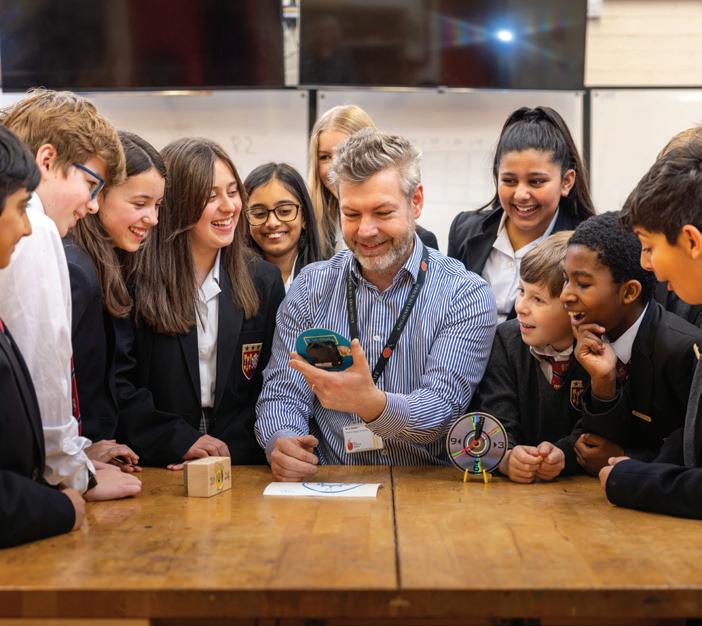
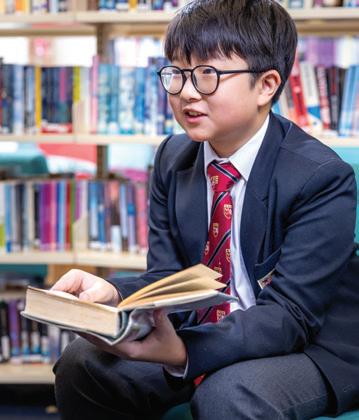


Early morning care is available from 7.45am and the many after school clubs runs between 4pm and 6pm where children can do their homework.
There are brand new ISI reports for both Senior and Junior schools, judged excellent across the board (May 2023).
Put them away! There’s detention if phones are used in school hours (including break times).
Public transport links could only be better if the train actually pulled up in reception. Coventry train station is directly across the road – two minutes’ walk at best – so it’s ideal for the pupils coming in from Leamington Spa, Rugby, Birmingham, Nuneaton and Hampton in Arden. There’s also free Park and Ride from the Tollgate car park on Holyhead Road.
A steady hand on the tiller across both Senior and Junior Schools has seen King Henry VIII School navigate the Covid years and emerge stronger in 2023. Parents like the diverse cohort here, and several say they’ve seen the benefit of the increase in pastoral focus. The kids I talked to were very proud of their school and even liked the lunches.
It’s an all-rounder offering here, so those parents who want the academics but with huge opportunities across music, sport and IT, this is a contender. It’s a fast, busy school day which will suit children who like to join in.
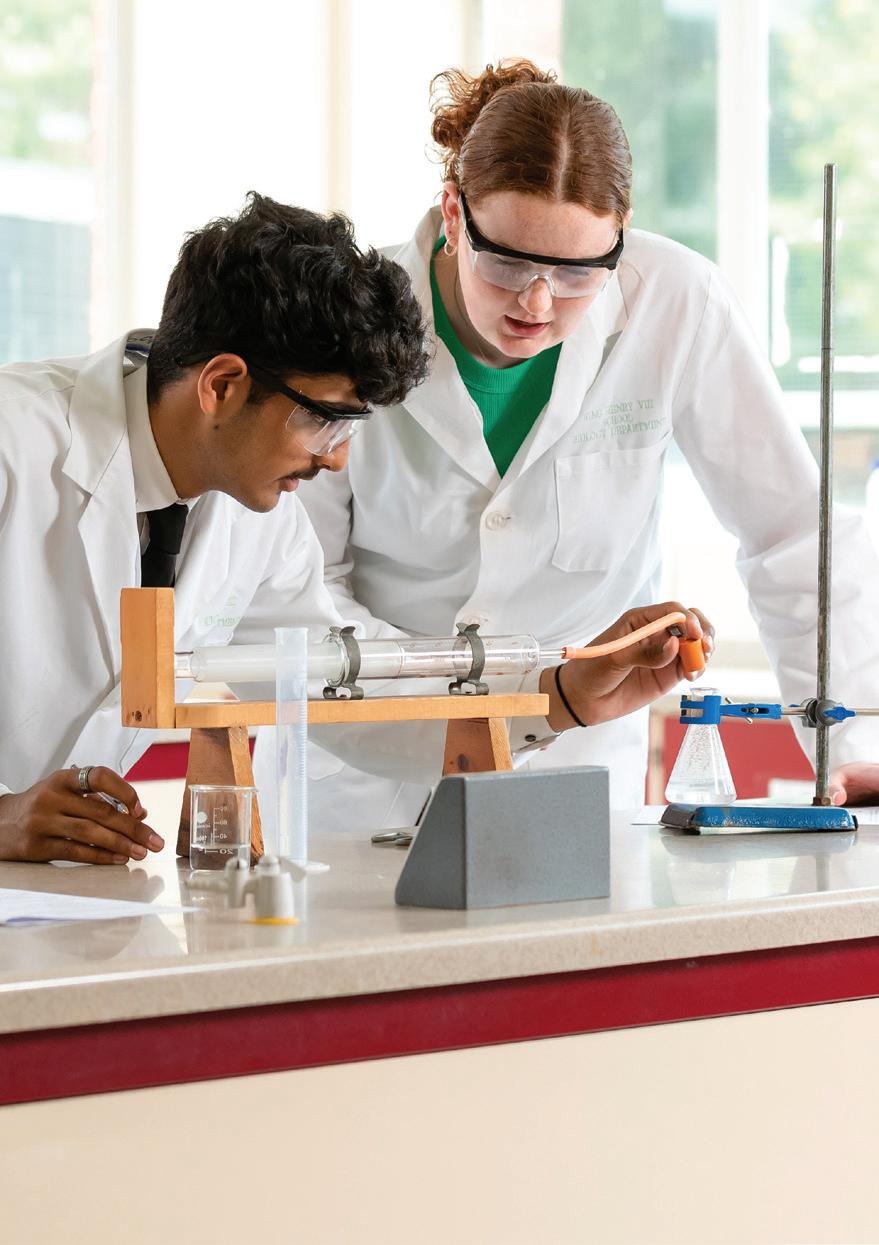
Not for:
Those looking for a rural idyll are not going to find it in a city school – even one with 25 acres. The main school building is grand but the majority of its add-ons are more functional than RIBA-worthy.